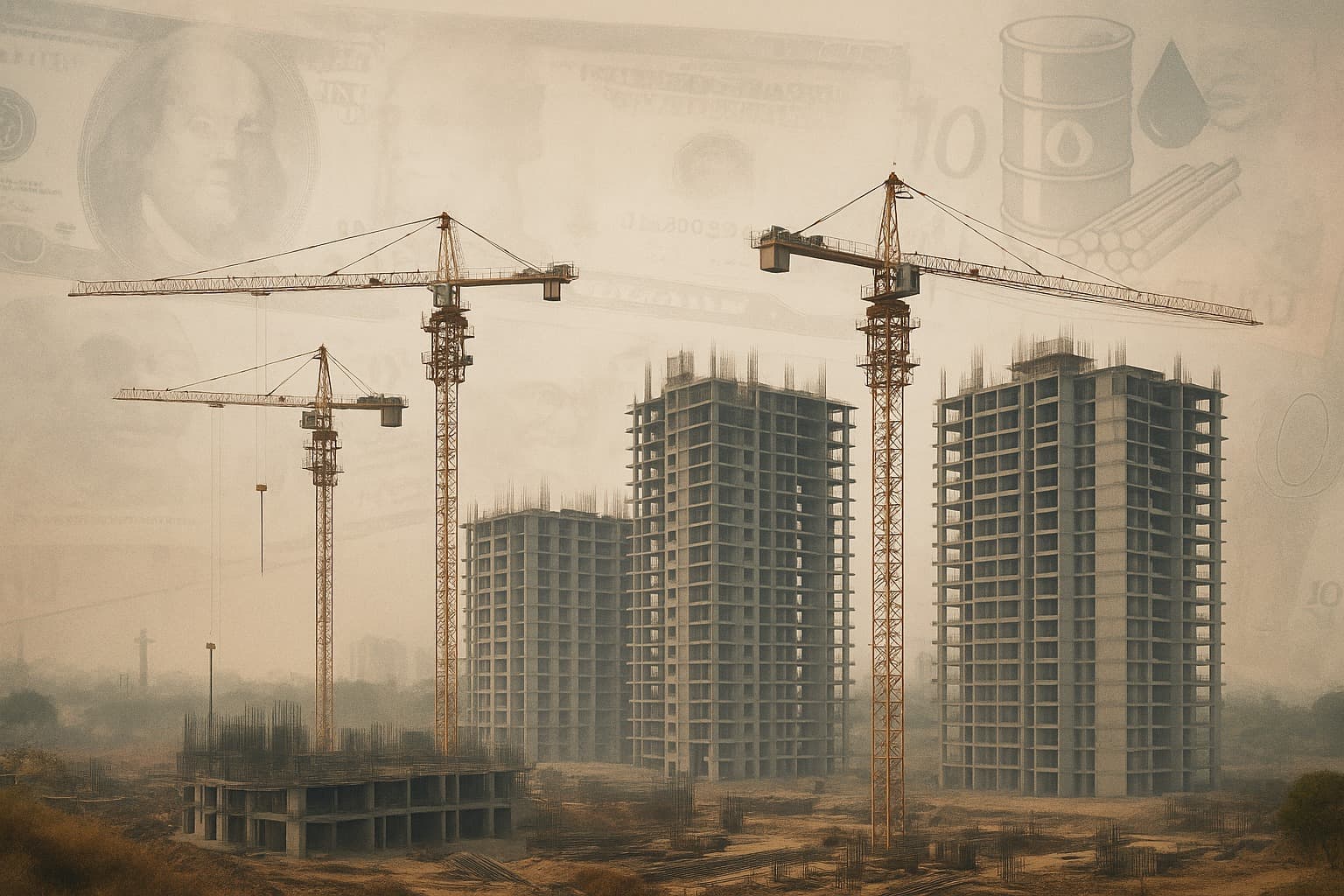How Global Events Impact Indian Real Estate
Summary
Global events significantly impact Indian real estate, influencing demand, prices, and investments. Economic shifts, policies, and geopolitical factors can create both challenges and opportunities for buyers and developers alike.

How Global Events Affect Indian Real Estate
Real estate isn’t just about local trends, new projects, or urban growth. The truth is, global events real estate has a ripple effect on markets across the world, and India is no exception. From economic crises and geopolitical tensions to international policy changes, these events can influence housing demand, property prices, and even investor sentiment in the Indian property market.
For buyers, investors, and developers, understanding how global factors impact local markets is more important than ever. After all, the real estate economy India doesn’t operate in isolation—it’s part of a global ecosystem.
The Global Connection
India’s real estate market is closely linked to global developments. A recession in the U.S., rising oil prices, or geopolitical conflicts in Europe or the Middle East can indirectly influence property demand and pricing here. That’s why housing demand global impact is a reality that cannot be ignored.
Even something as simple as fluctuations in foreign exchange rates can affect construction costs or remittances from NRIs. Similarly, shifts in global investment sentiment can alter the flow of foreign capital into the country, affecting both residential and commercial segments.
How the Global Economy Shapes Indian Property Sector
The role of global factors in shaping Indian real estate 2025 is becoming increasingly evident. Foreign investments, especially from NRIs and institutional investors, have always played a crucial role in cities like Mumbai, Bengaluru, Pune, and Hyderabad. When the global economy slows down, investment often slows too, affecting real estate slowdown or boom due to global issues.

On the flip side, periods of international economic stability usually result in higher investments, faster project launches, and rising Indian real estate trends. This makes India a dynamic market, where domestic demand combines with global influences to create a unique property landscape.
Historical Lessons: Boom and Slowdown
History shows how the impact of global events on Indian housing market can be both challenging and opportunistic. Take the 2008 global financial crisis, for example. While the crisis caused a temporary slowdown in property sales and project launches, India’s fundamentals—urbanisation, rising incomes, and government support—ensured a strong recovery.
Similarly, global booms can fuel real estate economy India growth. Strong international economies attract NRIs to invest in Indian real estate, driving prices and sales in key markets. Cities like Bengaluru, Pune, and Hyderabad often see high demand housing cities in India emerge during such periods.
Foreign Policies and Their Influence
Foreign policies across the globe also shape the Indian property market. Policies that affect trade, immigration, or overseas investment can have immediate consequences. For example, stricter foreign investment regulations or visa policies in other countries can reduce NRI inflows, impacting demand in cities like Mumbai and Delhi NCR.
Conversely, favourable policies—like tax benefits for overseas investments—can increase interest in India’s property markets. Understanding how global economy shapes Indian property sector helps developers and investors plan strategically, aligning launches and investments with international trends.
Global Political and Economic Events
Political instability, trade wars, or even oil price volatility can influence real estate indirectly. These global political and economic events influencing Indian real estate affect everything from construction costs to buyer sentiment.
A global recession, for instance, may cause NRIs to postpone property purchases. Developers may face higher borrowing costs, and luxury segment sales may slow. Yet, domestic demand often cushions the impact. India’s growing middle class and continued urbanisation ensure that long-term growth remains intact, even amid short-term challenges.
Recession and Indian Real Estate
How global recession affects Indian property market is a question many investors ask. Typically, international slowdowns reduce foreign investment flows. NRIs might delay home purchases, and commercial projects could face financing issues.
Yet, India’s domestic market acts as a stabilising factor. Even during global recessions, end-user demand continues for affordable and mid-segment homes. Developers often take these moments to offer competitive pricing, making it a good opportunity for savvy buyers. The impact of international economy on India’s housing sector is complex but manageable with proper planning.
Construction Costs and Commodity Prices
Global factors also influence construction costs. Rising steel or cement prices due to international demand spikes can increase project costs. Fluctuating currency exchange rates affect imported building materials. These changes directly influence the Indian real estate trends and the pace at which projects are completed.
Investors and buyers who understand these dynamics can better assess property pricing and potential appreciation, making informed decisions even when housing demand global impact fluctuates.
Strategies to Navigate Global Influences

Developers, investors, and homebuyers can take several steps to mitigate the effects of global events:
Diversify Investments: Spread across different cities and property types.
Monitor Global Indicators: Keep an eye on oil prices, foreign interest rates, and global economic policies.
Long-Term Perspective: Treat property as a long-term asset; short-term global fluctuations often balance out.
Leverage Opportunities: Use slow periods to buy or invest at attractive rates.
Understanding how global events impact Indian real estate demand and prices ensures better decision-making and reduces risk.
Conclusion
Global events play a profound role in shaping the Indian property market. From economic recessions and trade tensions to foreign policy changes, these factors influence investment, pricing, and housing demand. While short-term impacts can create slowdowns, India’s domestic demand, urbanisation, and infrastructure growth ensure long-term stability. Developers, investors, and buyers who understand the role of global factors in shaping Indian real estate 2025 can navigate challenges and leverage opportunities. In a world where economies are interconnected, keeping an eye on global trends is no longer optional—it’s essential for success in the Indian real estate sector.
Summary (100 words)
Global events significantly influence the Indian real estate trends, affecting demand, prices, and investment flows. Economic recessions, geopolitical tensions, and international policy shifts can slow down or boost the real estate economy India. NRIs and foreign investors are often the first to react, impacting cities like Mumbai, Bengaluru, and Hyderabad. Commodity prices, currency fluctuations, and global market sentiment further shape the Indian property market. Despite these influences, domestic demand and urbanisation sustain growth. Understanding how global events impact Indian real estate demand and prices allows buyers, developers, and investors to make informed decisions, mitigating risks and capitalising on opportunities in 2025.
